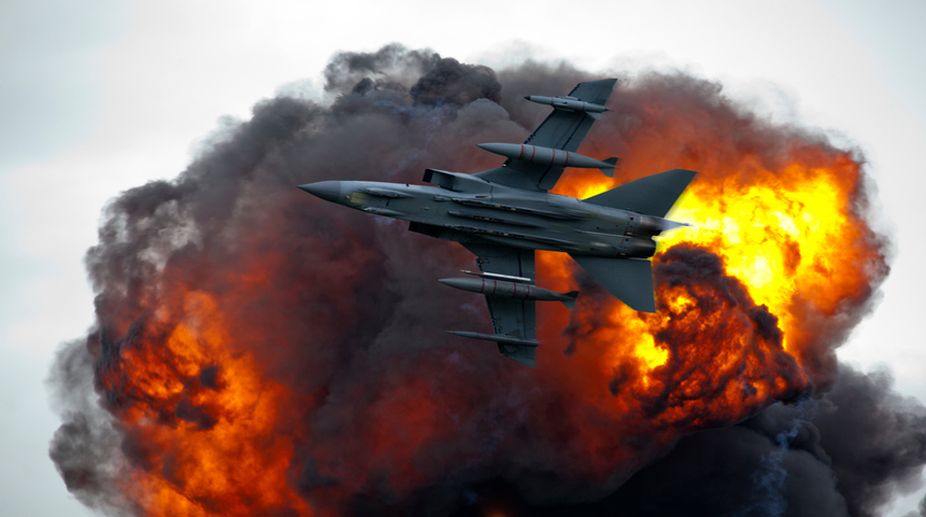Arrested ISIS terrorists were part of Shaheen Bagh protest, conspired in Delhi riots
One of the suspected ISIS terrorist, Arshad, gave the slogan ‘Tera Mera Rishta Kya Hai, La Ilaha Illallah’ during the CAA-NRC protest.

Representational Image (PHOTO: GETTY IMAGES)
Over 3,000 Islamic State terrorists have been killed in war-torn Iraq and Syria in airstrikes by Britain’s Royal Air Force over three years, according to the British government.
Advertisement
The details emerged as Defence Secretary Michael Fallon announced an Iraq and Syria Operational Service Medal for British soldiers during his visit to Iraq this week on the eve of the three-year anniversary of Operation Shader the code name for the UK’s contribution to the fight against ISIS.
Advertisement
An estimated 2,684 fighters were killed in Iraq since bombing began almost three years ago and a further 410 in Syria since the start of operations there in December 2015, according to the official UK Ministry of Defence (MoD) figures released this week.
“It is only right that those who have performed above and beyond in this fight against the evil of our time get the recognition they deserve. This medal will do just that,” Fallon told troops at Erbil and Taji in Iraq.
“Our troops have made huge contributions to the fight against Daesh (ISIS), helping end its tyranny in large parts of Iraq and Syria.
“They have conducted over 1,500 strikes against Daesh terrorist targets and helped train nearly 60,000 Iraqi security forces. The campaign is not over but for those that have served we rightly honour the critical role they have played in helping keep us safe,” he said.
The UK claims a leading role in the Counter-Daesh Global Coalition, providing over 1,400 military personnel from across all services Army, Navy and Air Force as part of its three-year involvement.
Following the recent uplift of 44 additional Royal Engineers who deployed to Al Asad Airbase in August, there are around 600 British soldiers on the ground in Iraq.
They are primarily involved in training Iraqi security forces in battle winning infantry, engineering and combat medical techniques as well as providing courses on countering improvised explosive device (IEDs) and other critical skills.
Current UK Operational Medals policy requires consideration of risk and rigour to qualify for award of a campaign medal.
To date, risk has been defined in terms of requiring an individual to be physically exposed to danger to qualify for medallic recognition and currently there are approximately 3,600 personnel who will receive the medal from May 2018.
The defence secretary has directed that this approach be examined to consider how best to recognise the rigour and operational contribution of those outside the immediate theatre of operations and to cover drone pilots.
Fallon said: “The changing character of warfare provides new challenges not just about how we fight but also how we recognise and support those who serve”.
“As fighting has evolved, we have adapted, ensuring our troops have cutting-edge equipment including unmanned systems operated from outside the battle space. Our recognition of service, the risks taken and the long-term effects must therefore adapt too.
“That is why we need to examine how to provide medallic recognition for those making a vital contribution to Operation Shader outside the battlespace, from Reaper pilots taking life and death decisions to those who ensure our planes can strike Daesh targets,” he said.
During his Middle East tour, Fallon also visited the Combined Air Operations Centre (CAOC) at Al Udeid Air Base in Qatar, where the UK is working closely with the US as the two largest contributors to the coalition’s military campaign.
As the command centre for the entire coalition’s operations in Iraq and Syria, UK personnel, working alongside allies, are coordinating over 70 nations’ activity including over 1,500 air strikes and surveillance conducted by the Royal Air Force in the UK’s three-year campaign.
Advertisement